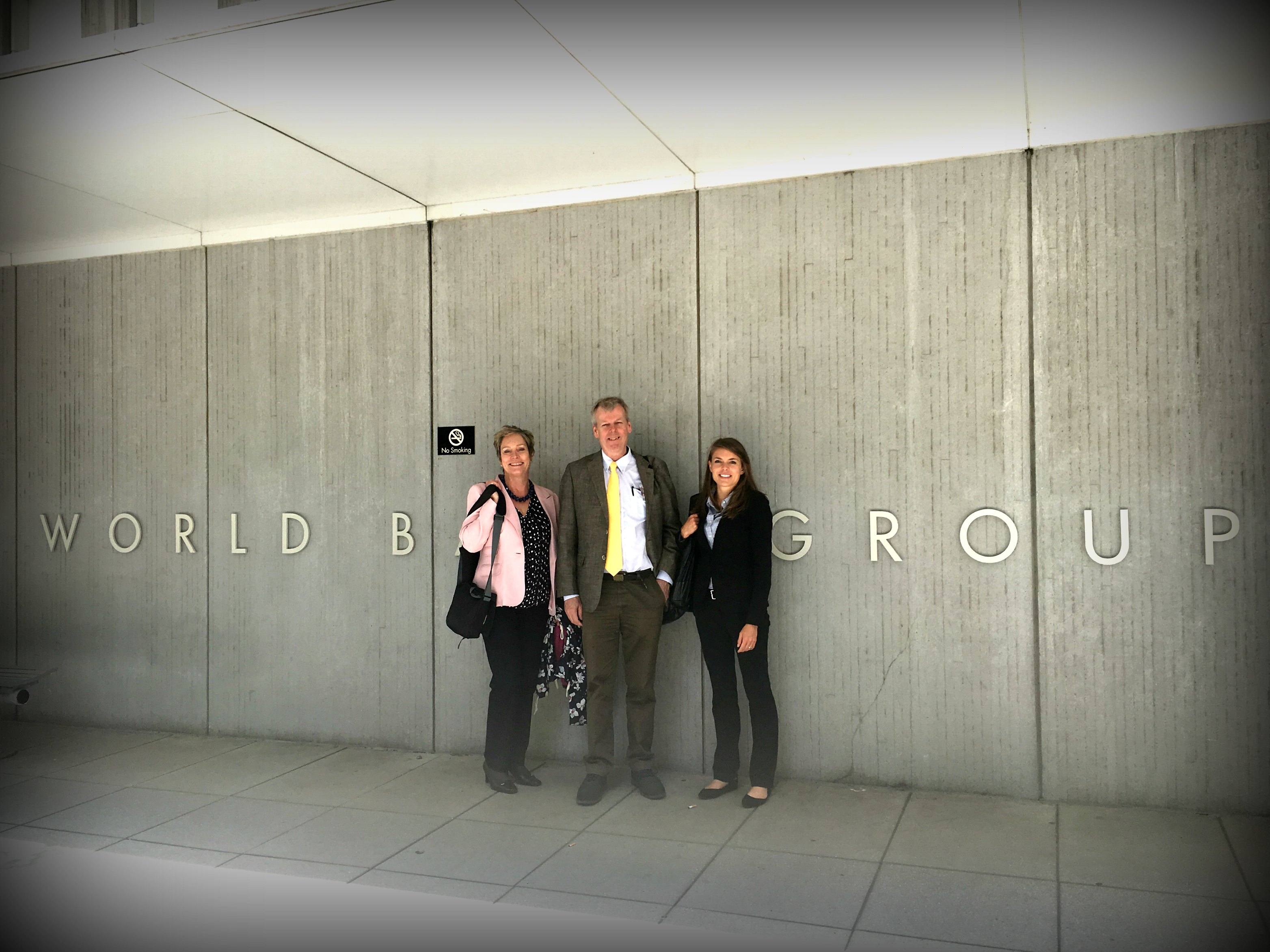 After the talks we had a question and answer session (with some super-bright questions!), and finally we were each given a minute to suggest ways in which the World Bank could take the issue forward. The session was closed by the Senior Director of the Agricultural Global Practices unit, Juergen Voegele, who spoke passionately about the need for all World Bank staff to embrace animal welfare, and to promote it to all customers and stakeholders “whether they asked about it not”! Then Dr. Voegele announced that he would “accept the challenge put forward by Janice Cox”, and confirmed that the World Bank would host an international stakeholder conference on animal welfare and development!
After the talks we had a question and answer session (with some super-bright questions!), and finally we were each given a minute to suggest ways in which the World Bank could take the issue forward. The session was closed by the Senior Director of the Agricultural Global Practices unit, Juergen Voegele, who spoke passionately about the need for all World Bank staff to embrace animal welfare, and to promote it to all customers and stakeholders “whether they asked about it not”! Then Dr. Voegele announced that he would “accept the challenge put forward by Janice Cox”, and confirmed that the World Bank would host an international stakeholder conference on animal welfare and development!
I cannot begin to express how delighted I was!
We have since received confirmation that the World Bank is working on the concept for this event, and that it will bring together multiple stakeholders and ensure proper participation of civil society. The focus will be on best practices and the main takeaway of this workshop will be an evidence basis for practical guidelines.
Why This is a Groundbreaking Development
WAN has been advocating on the need to include animal welfare in development policy and international development work throughout our 20 years of existence, as have many of our Animal Protection Organisation (APO) colleagues and affiliates. This has included periodic advocacy with the World Bank, as well as other major development institutions.
At one stage – about 12 years ago now! - I thought there was about to be a “great leap forward” when the World Bank agreed to host an international conference on animal welfare and development. It was a time when collaborative animal protection advocacy and work from the UK’s Department for International Development (DFID) came together to build a strong case for the need to include AW in Development. Hilary Benn, who was the UK’s Secretary for International Development at the time, had agreed to Chair the meeting, and we had even started to draft an agenda... But sadly this fell through when there was a change of UK Minister.
Back in 2015, we noted that the World Bank had reorganised around “Global Practices”, and thought this may be an opportunity to take forward our advocacy on animal welfare and development. There is more background to the reorganisation here. We were impressed with the track record and commitment of Juergen Voegele who was appointed the Senior Director of the Agricultural Global Practices unit. So we sought a meeting.
We finally met with the Global Agricultural Practices unit in June last year, and were “over the moon” when they expressed an interest in taking forward the animal welfare agenda. They mentioned that a compilation of Best Practice resources would be a constructive way to start the ball rolling. Enthused, we went away and prepared the first draft of a Best Practice resource, in cooperation with the International Coalition for Animal Welfare (ICFAW). This was well-received by the World Bank, and they subsequently invited me to speak at their Agriculture Global Practice Annual Forum.
Tomorrow’s Agriculture – Starting Today
The World Bank’s Agriculture Global Practice Annual Forum took place in Washington from March 6-9 2017, with animal welfare being covered on Wednesday 8th March. The forum is an event hosted by and for the World Bank, which allows the Agriculture Global Practice division to share information, developments and build partnerships across the World Bank’s family of 14 Global Practices (the list of Global Practice divisions is available here). The theme of this year’s forum was “Tomorrow’s Agriculture – Starting Today”, and it explored various “hot” topics that will affect agriculture through to 2050.
The session which I took part in included both animal welfare and animal health (focussing on antimicrobial resistance), although I was only asked to take part in the animal welfare section. Both subjects were described as “critical issues” for the future. Opening the animal welfare session, I was tasked with setting the scene and exploring animal welfare as an important and developing societal issue. I started by explaining (for the varied audience) what animal welfare is; ethical and societal aspects; the growing body of animal welfare science and policy; and the role of animal protection organisations. I stressed the need for the development of best practice and implementation partnerships.
The session on antimicrobial resistance also included animal welfare aspects. Both Daniela Battaglia, the FAO representative, and Catherine Rogy, a French civil servant based in Washington, stressed the connection between good welfare and animal health, and the need to stop the use of antibiotics as growth promoters. They mentioned the need to promote good husbandry in this regard – as “when animals are healthy and happy, they are not sick”. Don Shriber, a representative from the US Centers for Disease Control and Prevention (CDC) stressed that antibiotic misuse was common in both human and animal sectors. The World Bank recognise this as a big issue for the future: One that has potentially devastating consequences for human and animal health.
Next Steps
After the session, Dr Voegele and I discussed the proposed stakeholder workshop, and he mentioned the possibility of this being as early as summer 2017. We will, of course, advise as soon as we hear more news. Watch this space, and hope that this time the initiative will run its course, with great results for animals across the developing world.
See also:
WAN Blog on Animal Welfare & Development
Best Practice in Animal Welfare
WAN's Research Completed in Preparation for the World Bank Forum

